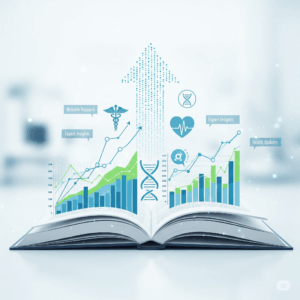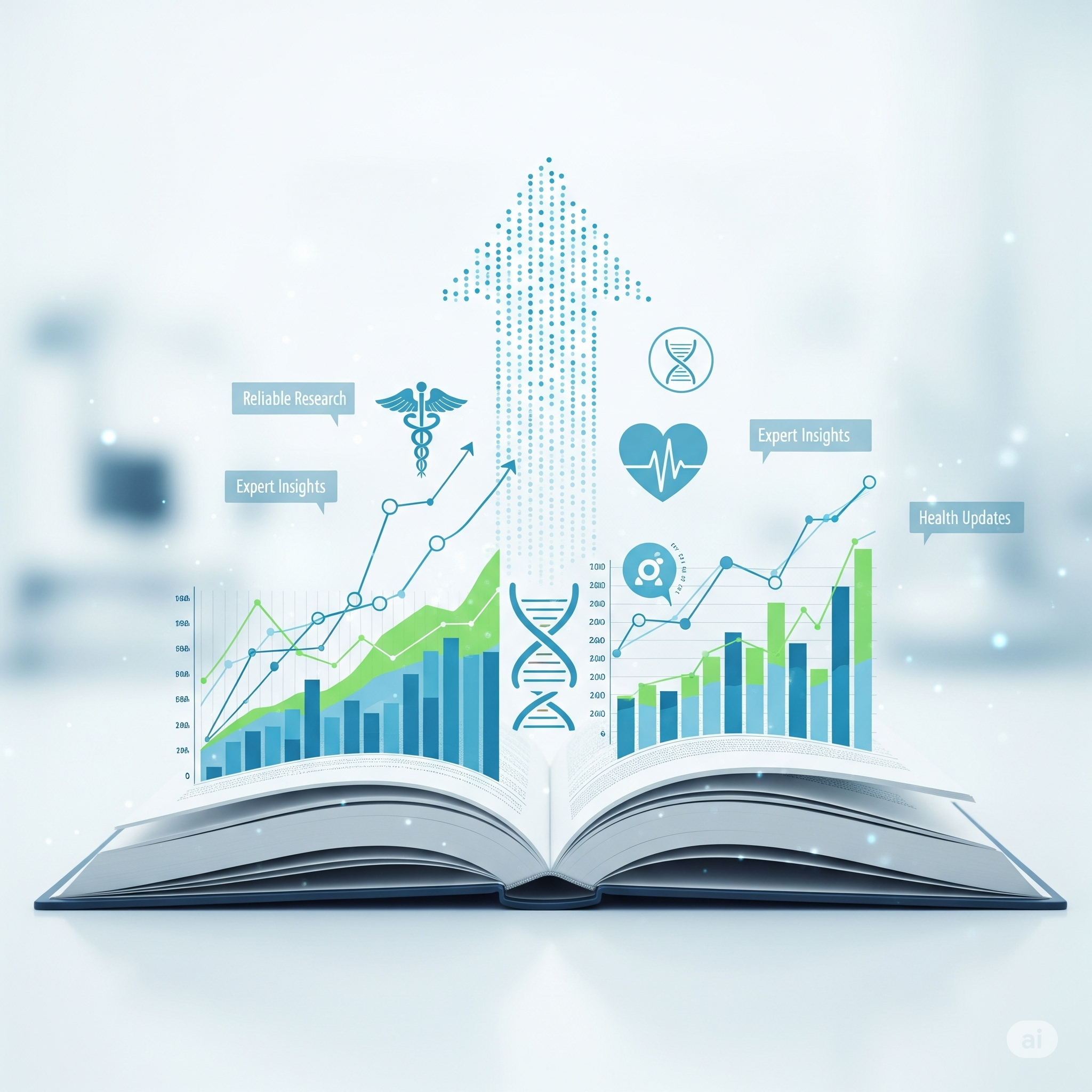You’re lying in bed at 2 AM with a mysterious symptom, and like 72% of Americans, your first instinct is to search for answers online. Within seconds, you’re on WebMD, scrolling through symptom checkers and medical articles. But here’s the million-dollar question that keeps you awake even longer: “Is WebMD actually reliable, or am I just scaring myself?”
If you’re a busy adult between 30-50, you’ve probably turned to WebMD more times than you’d care to admit. Maybe it was for your child’s fever, your own persistent headache, or that weird rash that appeared overnight. With about six-in-ten Americans seeking health information online in the past year, you’re definitely not alone in this digital health journey.
The truth is, WebMD has become America’s unofficial “first opinion” doctor, but understanding how to use it correctly could mean the difference between informed health decisions and unnecessary anxiety.
What Makes WebMD America’s Go-To Health Resource?
WebMD positions itself as “the leading source for trustworthy and timely health and medical news and information,” providing credible health information, supportive community, and educational services by blending award-winning expertise in content, community services, expert commentary, and medical review.
Founded in 1998, WebMD has grown from a startup to the most recognizable health website in America. But what exactly makes it so trusted?
The Medical Expertise Behind WebMD
The WebMD Medical Team works closely with over 100 nationwide doctors and health experts across a broad range of specialties to ensure WebMD’s content is up to date, accurate, and helps you live a healthier life. The WebMD Editorial Team blends award-winning expertise in medicine, journalism, health communication, and content creation.
This isn’t just marketing speak—it’s a genuine commitment to medical accuracy that sets WebMD apart from random health blogs or social media advice.
Independent Credibility Assessment
Media Bias/Fact Check rates WebMD as “PRO-SCIENCE,” consisting of legitimate science that is evidence-based through the use of credible scientific sourcing. Medical professionals, including those at MUSC Health, acknowledge that “WebMD, which is at the top of Google’s answer for medical advice, is a reliable source of a wealth of medical content and advice.”
How Reliable Is WebMD Really? The Evidence-Based Answer
Let’s address the elephant in the room: WebMD has a reputation for making people think they have serious diseases when they probably don’t. This phenomenon even has a name—”cyberchondria.” But is this reputation fair?
What WebMD Gets Right
1. Medical Accuracy and Review Process Every piece of content on WebMD goes through multiple layers of medical review by board-certified physicians. The information is based on peer-reviewed research and established medical guidelines, not opinion or anecdotal evidence.
2. Comprehensive Symptom Information WebMD’s symptom checker considers a wide range of possibilities, from common to rare conditions. While this can feel overwhelming, it’s actually more thorough than what you might get in a quick doctor’s visit.
3. Regular Updates and Current Information Medical knowledge evolves rapidly, and WebMD updates its content regularly to reflect new research, treatment guidelines, and medical consensus.
4. Clear Sourcing and References Unlike many health websites, WebMD typically provides clear sources for its medical claims, allowing you to trace information back to original research studies.
Where WebMD Falls Short (And How to Work Around It)
1. The “Worst-Case Scenario” Problem WebMD lists conditions by likelihood and severity, but human psychology makes us focus on the scariest possibilities first. A headache might be tension-related (common) or a brain tumor (extremely rare), but guess which one you’ll worry about?
Solution: Always start with the most common explanations and work your way down the list.
2. Lack of Personal Context WebMD can’t consider your personal medical history, current medications, or family history—all crucial factors in accurate diagnosis.
Solution: Use WebMD for general information, but always discuss findings with your healthcare provider who knows your complete medical picture.
3. Symptom Overlap Between Conditions Many serious and minor conditions share similar symptoms, making self-diagnosis particularly challenging.
Solution: Focus on pattern recognition (how long symptoms last, what makes them better/worse) rather than trying to pinpoint exact diagnoses.
How to Use WebMD Safely and Effectively: A Smart Person’s Guide
Before You Start Searching
Set realistic expectations: You’re gathering information, not getting a diagnosis. Think of WebMD as research for a conversation with your doctor, not a replacement for medical care.
Know your triggers: If you’re prone to health anxiety, consider setting time limits for your searches or having a trusted friend help you interpret information.
Smart Search Strategies
1. Start Broad, Then Narrow Begin with general symptoms (“headache”) rather than jumping to specific diseases (“migraine vs. cluster headache”). Let the information guide you naturally.
2. Focus on “Red Flag” Symptoms WebMD is excellent at identifying when symptoms require immediate medical attention. Pay special attention to these warnings.
3. Use Multiple Sections Don’t just rely on the symptom checker. Read the full articles about conditions, treatment options, and prevention strategies.
Questions to Ask Yourself While Reading
- How long have I had these symptoms?
- Are they getting better, worse, or staying the same?
- What makes them better or worse?
- Do I have any risk factors mentioned in the article?
- Are there any “red flag” symptoms I should watch for?
When WebMD Should Send You to a Real Doctor
WebMD is clear about when self-research should stop and professional medical care should begin. Here are the universal “see a doctor” triggers:
Immediate Medical Attention Needed:
- Chest pain or difficulty breathing
- Severe headache with fever, stiff neck, or vision changes
- Signs of stroke (facial drooping, arm weakness, speech difficulties)
- Severe abdominal pain
- Any symptom that’s rapidly worsening
Schedule a Doctor’s Appointment Within Days:
- Symptoms that persist longer than expected for common conditions
- New symptoms that significantly impact your daily life
- Any symptom that WebMD consistently links to serious conditions
- Multiple unexplained symptoms occurring together
Regular Check-up Topics:
- Preventive care information you’ve learned
- Questions about family history and risk factors
- Lifestyle modifications suggested by articles you’ve read
WebMD vs. Other Health Websites: How Does It Stack Up?
While nih.gov was the leading health website in the United States in March 2024, WebMD remains the most user-friendly and comprehensive resource for general health information.
WebMD vs. Mayo Clinic
- WebMD: More accessible language, better symptom checker, more lifestyle content
- Mayo Clinic: More conservative approach, excellent for specific disease information
WebMD vs. MedlinePlus (NIH)
- WebMD: Better user experience, more engaging content format
- MedlinePlus: More conservative, government-backed information but sometimes harder to navigate
WebMD vs. Healthline
- WebMD: More established, better medical review process
- Healthline: More modern design, better mobile experience
The Psychology of Online Health Information Seeking
Research shows that 63.66% of adults sought online health information in the last 12 months, with a mean age of 46.72 years—right in your demographic sweet spot.
Understanding why we turn to WebMD can help us use it more effectively:
Immediate Gratification: Health concerns create anxiety, and WebMD provides instant (if not always reassuring) answers.
Control and Empowerment: Reading about symptoms and conditions makes us feel more in control of our health situation.
Cost and Convenience: It’s free and available 24/7, unlike most healthcare providers.
Privacy: You can research embarrassing or sensitive topics without judgment.
Expert Tips for Getting the Most from WebMD
From Healthcare Professionals:
Dr. Sarah Martinez, Family Medicine: “I encourage patients to use WebMD for general education, but I ask them to come with questions, not self-diagnoses. The best patients are informed patients who know when they need professional help.”
Dr. Michael Chen, Emergency Medicine: “WebMD is actually pretty good at identifying true medical emergencies. When it says ‘seek immediate care,’ people usually should listen.”
From Mental Health Experts:
Licensed Therapist Lisa Johnson: “Set boundaries with health websites if you’re prone to anxiety. Use timers, read with a trusted person, and remember that correlation doesn’t equal causation.”
The Future of Online Health Information
Online health information seeking behavior has become increasingly common and the trend has accelerated as a result of the COVID-19 pandemic. The last five years have seen a leap in the development of information technology and social media, making online health information seeking more popular and widely accepted.
WebMD continues to evolve with features like:
- AI-powered symptom checkers
- Telemedicine integration
- Personalized health tracking
- More interactive educational content
Common WebMD Myths Debunked
Myth 1: “WebMD always says you have cancer” Truth: WebMD lists conditions by likelihood, but people tend to focus on rare, serious conditions first.
Myth 2: “Doctors hate when patients use WebMD” Truth: Most doctors appreciate informed patients, as long as they understand the limitations of self-research.
Myth 3: “WebMD information isn’t medically accurate” Truth: The content is medically reviewed by board-certified physicians and based on current medical literature.
Myth 4: “You shouldn’t use WebMD if you have health anxiety” Truth: With proper boundaries and realistic expectations, even anxious individuals can benefit from quality health information.
The Bottom Line: Is WebMD Reliable?
Yes, WebMD is a reliable source for health information when used appropriately. It provides credible health information through award-winning expertise, working with over 100 nationwide doctors and health experts to ensure content accuracy.
The key is understanding what WebMD can and cannot do:
WebMD CAN:
- Provide accurate, medically-reviewed information about symptoms and conditions
- Help you understand when to seek medical care
- Educate you about treatment options and preventive measures
- Prepare you for productive conversations with healthcare providers
WebMD CANNOT:
- Provide personalized medical advice
- Replace professional medical diagnosis
- Consider your unique medical history and risk factors
- Provide urgent medical care when needed
Making WebMD Work for You: Action Steps
- Bookmark reliable sections: Save frequently-used tools like the symptom checker and drug interaction checker
- Create a health journal: Document symptoms, triggers, and timeline before researching
- Prepare doctor visit questions: Use WebMD research to create informed questions for your healthcare provider
- Set search boundaries: Limit research time and stick to reputable sources
- Join the community: WebMD’s moderated forums can provide support and real-world experiences
Remember, WebMD is a tool—and like any tool, its value depends on how skillfully you use it. When used thoughtfully as part of a broader approach to health awareness, it can be invaluable for staying informed and making better health decisions.
Medical Disclaimer: This article is for informational purposes only and is not intended to replace professional medical advice, diagnosis, or treatment. Always consult with qualified healthcare providers for medical concerns and before making health-related decisions.







